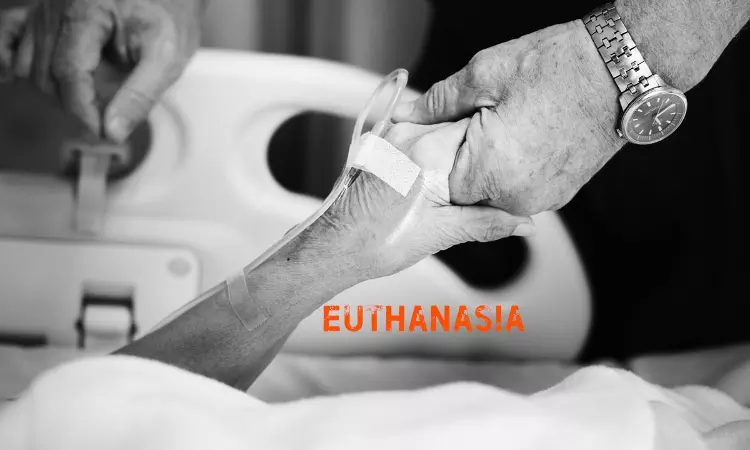Passive Euthanasia In India: Toward A Streamlined, Technology Driven Protocol
K.Kannan, Senior Advocate
29 Jun 2025 11:35 AM IST
India's legal journey on end‑of‑life care has evolved from cautious judicial forays into passive euthanasia to the promise of patient‑driven advance directives. Yet, despite successive Supreme Court judgments—from Aruna Shanbaug (2011) to the Common Cause ruling (2018) and its K.M. Joseph–led modification (2023)—the process remains burdened by procedural hurdles that too often...
India's legal journey on end‑of‑life care has evolved from cautious judicial forays into passive euthanasia to the promise of patient‑driven advance directives. Yet, despite successive Supreme Court judgments—from Aruna Shanbaug (2011) to the Common Cause ruling (2018) and its K.M. Joseph–led modification (2023)—the process remains burdened by procedural hurdles that too often deny timely relief to those facing irreversible suffering. By harnessing digital technology, empowering hospital ethics committees and state medical ombudsmen, and preserving robust safeguards, India can honour both the sanctity of life and the autonomy of terminally ill patients.
Active versus Passive: A Foundational Distinction
Active euthanasia—deliberately administering a life‑ending agent—remains illegal in India, steeped in moral and philosophical objections to “doing” what physicians are sworn to heal. Passive euthanasia, by contrast, permits the withdrawal or withholding of life‑sustaining treatment—ventilators, dialysis, artificial nutrition—allowing the underlying illness to take its natural course. Globally, jurisdictions such as Canada, several European countries and select U.S. states recognize passive euthanasia under strict conditions, distinguishing a physician's neutral omission from an intentional act of killing. In India, the Supreme Court has affirmed that, when treatment merely prolongs suffering without hope of meaningful recovery, allowing death to ensue can be an act of mercy consistent with constitutional guarantees of dignity and autonomy.
Preserving Life's Inherent Dignity
India's Constitution enshrines the right to life and personal liberty (Article 21), implicitly safeguarding the right to die with dignity. Any protocol permitting passive euthanasia must foreground three inviolable principles:
- Informed Consent: Patients (or their duly appointed surrogates) must fully understand prognosis, treatment options, palliative care alternatives and the consequences of refusing life‑sustaining measures.
- Voluntariness: Consent must be free from coercion, undue influence or familial pressure.
- Competence: Only individuals with decisional capacity—able to comprehend and weigh complex medical information—should execute advance directives.
Restricting the scope solely to passive withdrawal under advance directives upholds life's sanctity by respecting an individual's prior, autonomous choice about burdensome treatment, rather than endorsing an affirmative act to cause death.
The Current Procedural Quagmire
Today's advance‑directive regime in India entails:
- Drafting a “living will” and securing notarization and witnesses.
- Hospital and district medical boards to validate terminality and capacity.
- Judicial or quasi‑judicial review in disputed or exceptional cases.
For patients in the final stages of a terminal illness—often debilitated, in pain and with limited time—this multipart process can verge on Kafkaesque, delaying relief for weeks or months.
A Four‑Pillar, Technology‑Driven Protocol
- Digital Registry for Advance Directives
- Unified Web Portal: Under the National Health Stack, individuals can draft, register, amend or revoke their advance directives online.
- Aadhaar‑Linked Authentication: Biometric verification ensures directives originate from the patient, curbing fraud.
- Physician Attestation: A patient's primary clinician digitally certifies decisional capacity and voluntariness—eliminating dual medical‑board travel for the patient.
- Empowered Hospital Ethics Committees (HECs)
- One‑Tier Review: On admission, the treating hospital's HEC—comprising two senior physicians, a palliative‑care specialist and an independent lay member—assesses and approves withdrawal of treatment in line with the directive.
- 48‑Hour Turnaround: Time‑bound decisions, logged on the portal, ensure prompt relief.
- State‑Level Medical Ombudsman
- Targeted Oversight: Rather than blanket judicial review, only cases flagged by the portal's automated analytics—last‑minute changes, directives without terminal diagnoses—are audited by the state‑level Medical Ombudsman's Office.
- Rapid Appeals: Patients or families may appeal HEC decisions within 72 hours, preserving due process while minimizing delays.
- Mandatory Safeguards
- Cooling‑Off Period: A seven‑day waiting period between registration and enforceability, during which patients may reconfirm or revoke.
- Tele‑Counselling: Integrated psychological evaluation—covered under Ayushman Bharat—confirms motive and capacity.
- Palliative‑Care Consultation: Before any treatment withdrawal, a formal review of pain‑management and hospice options ensures that patients are not opting out of potentially effective comfort measures.
Balancing Efficiency with Ethical Integrity
This technology‑driven model harmonizes accessibility and protection:
- Democratic Access: Digital registration and local HECs eliminate the need for multiple in‑person approvals, crucial for rural and under‑resourced regions.
- Transparency: Biometric ties, audit trails and anonymized national dashboards guard against misuse while informing policy refinements.
- Speed: A single review tier and targeted, data‑driven oversight prevent procedural gridlock, delivering relief when time is of the essence.
- Respect for Life: By confining permissibility to passive withdrawal under advance directives, the protocol reaffirms medicine's duty to alleviate suffering—not to hasten death.
Conclusion
For India's end‑of‑life jurisprudence to match its constitutional commitment to dignity and autonomy, the advance‑directive process must evolve beyond its current tangle of boards, notaries and courts. A digital registry, empowered hospital ethics committees, state medical ombudsmen and embedded safeguards can deliver a humane, streamlined framework—one that honours the intrinsic worth of every life, even as it respects each individual's final, sovereign choice. This is not merely legal reform; it is a moral imperative for a compassionate society.
Views Are Personal.
Author is a Former Judge of High Court of Punjab And Haryana.
The above is an excerpt taken from the book 'Medicine And Law' written by him and published by Thomson Reuters.
The book is Available in https://amzn.in/d/02RUSmj;



